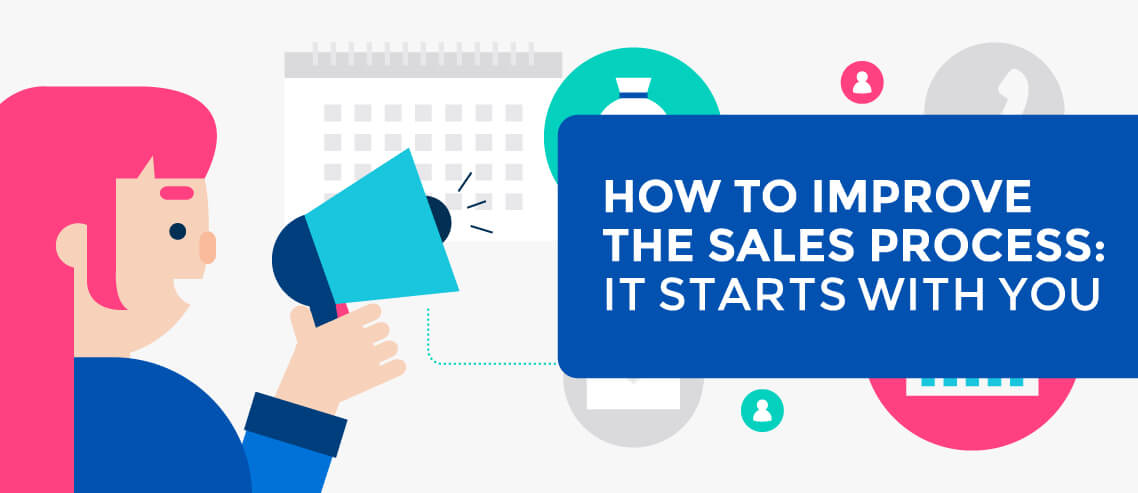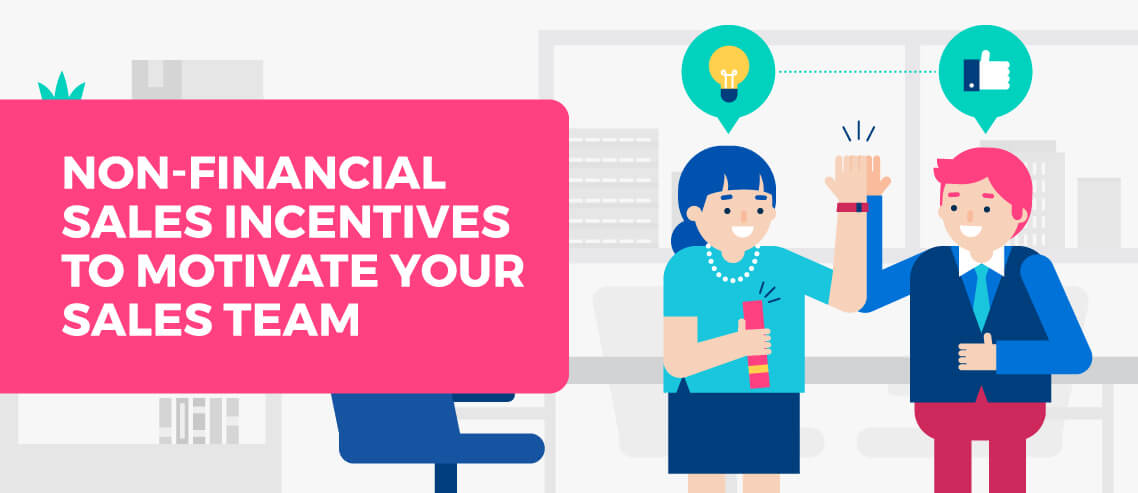Everything You Need to Know About Channel Sales
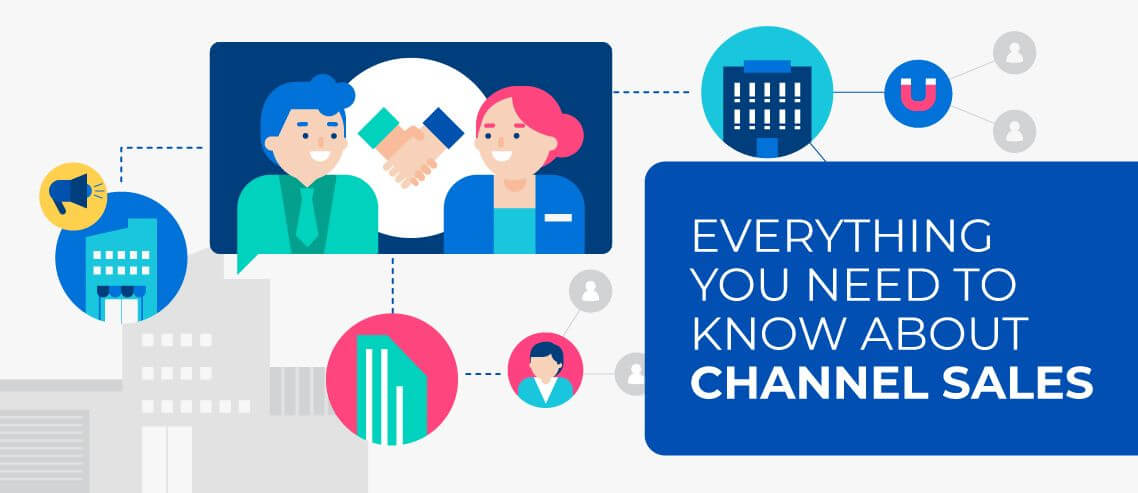
Contents
You want to scale up revenue.
But there’s a big barrier – your salespeople simply don’t have the time to speak to more prospects and close more deals.
To make matters worse, on average your reps are only spending about one-third of their time on revenue-generating activities.
So what’s the solution?
Well, you could hire a bunch of new reps. That way, you’d likely sell more. But it also carries a lot of additional costs, which erodes your margins.
Alternatively, you could move to a more efficient sales model. Channel sales could be the solution you’ve been searching for.
What Is Channel Sales?
Channel sales is all about getting people who don’t actually work for your organization to sell your product or service.
That’s a pretty broad definition. More specifically, it involves teaming up with people like:
- Referral partners
- Distributors
- Managed service providers
- Marketplaces
- Value-added resellers
Clearly, those partners aren’t selling for you out of the goodness of their own hearts. They’re taking a chunk of the profit, while (potentially) freeing you from some of the burden of maintaining a substantial in-house sales operation.
Channel Sales vs. Direct Sales: What’s the Difference?
Traditional “direct” sales involves selling to customers outside of a retail environment.
It’s the classic B2B model, where reps send emails, hammer the phones, and give product demos via video calls or in-person meetings.
To do direct sales effectively, you need to build and manage your own sales team. Ideally, that sales team will be geographically located close to your customers, which may require opening multiple sales offices if you serve more than one territory.
All of those things take time and carry a significant ongoing cost.
Channel sales is different. Because you’re dealing with people like resellers and distributors, you don’t have to maintain a local presence. As such, it’s an extremely efficient way to get your product in front of new customers.
However, it’s not all savings. While channel sales will likely allow you to employ fewer reps, you’ll need someone on your side to manage all of those channel relationships. You might even need separate people – or entire teams – to manage each individual channel,
depending on the scale of your channel operation.
What Are the Benefits of a Channel Sales Strategy?
A channel sales strategy can have many benefits – some of the biggest include:
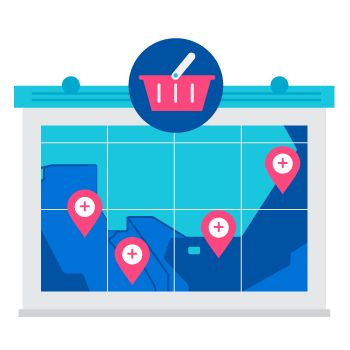 Reaching customers in new geographies: Your brand might not have a nationwide or international presence, but your channel partners might. Or they might have a strong presence in local markets where you’re relatively (or completely) unknown.
Reaching customers in new geographies: Your brand might not have a nationwide or international presence, but your channel partners might. Or they might have a strong presence in local markets where you’re relatively (or completely) unknown.- Reducing sales, marketing & distribution costs: Because channel partners typically already have a strong footprint in their market, there’s less burden on you to spend money on marketing your product. Simply put, your partners can do it for you.
- Scaling up your sales operation: Returning to the point I made at the start of this article, channel sales helps you get in front of more customers without employing more reps. Even if you’re in a niche market, there are likely dozens – if not hundreds – of potential partners you could work with. That makes channel sales super scalable.
- Taking advantage of bundled offers: Say you sell a SaaS product that helps sales teams send emails at scale. Your channel partner could bundle your product in with a bunch of other sales solutions and sell them all together. More sales for you, higher-value sales for your partner, and better value for the customer – everyone wins!
- Accessing customers who prefer dealing with consultants: Not every buyer wants to deal with the vendor directly. They might not have the time to speak to a bunch of different providers to find the best fit, so they work with a consultant or reseller to find the package that offers the best value. If you’re not working with channel partners, you’ll miss out on those deals.
What Are the Potential Problems of Channel Sales?
Of course, channel sales isn’t a silver bullet for your sales operation. There are undoubted benefits to successfully implementing a channel program, but there are plenty of potential pitfalls as well. For instance:
- Reduced control over the sales process: At the very minimum, channel sales places an intermediary between you and the buyer. In some cases, the seller might not be involved in the sales process at all. That leaves you with little or no opportunity to influence outcomes.
- Lower brand loyalty: Ultimately, customers are buying from your channel partner, not from you. When they sign on the dotted line, they’re placing just as much faith in your partner as they are in you. If your partner chooses to leave your program, or is incentivized to sell a rival product, there’s a very real possibility of you losing that customer.
- Less control of messaging: You likely want your product to be spoken about in certain terms. It’s not “cheap,” it offers superb value. It’s not “simple,” it’s advanced but easy to learn. Handing the reins over to a channel partner gives you less control over the way your solution is positioned.
- Lower margins on channel deals: As I noted earlier, your partners aren’t doing this for free! Depending on the type of relationship and the value they provide, you could be turning over up to 50% of your recurring revenues to your channel partner. That’s a big hit to your margins.
- More unpredictable revenues: When you have an in-house sales operation, your pipeline is pretty visible and you should be able to predict future sales with some degree of accuracy. But your partners might not share their full pipeline with you. And even if they do, it’s hard to predict the outcome of those potential deals when you have limited involvement in the sales process.
5 Examples of Channel Sales
While vendor-channel partner relationships can take a lot of different forms, the most common fall into one of these five categories:
1. Affiliate Partners
In affiliate relationships, the vendor pays a commission to their affiliate – such as a website owner – to promote their products. The vendor typically earns a small percentage for every sale they refer.
2. Resellers
The reseller effectively acts as an intermediary between the vendor and the customer. First, they’ll buy the product (or a license) from the vendor, then they’ll sell it to the end user for a profit. The customer will typically deal directly with the reseller during the purchase stage, while the reseller will work with the vendor to fulfil the order.
3. Independent Retailers
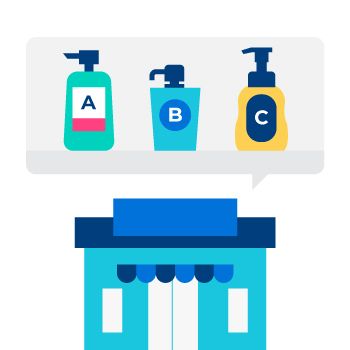
A retail business that isn’t tied to any one brand or franchise, giving them the freedom to sell products from a range of suppliers and vendors.
4. Value-Added Resellers
As the name suggests, these businesses buy and resell standalone tech products bundled with additional features or complementary products over and above those offered by the vendor. A good example would be a PC seller that bundles a desktop computer with a range of software and hardware, like Microsoft Office, an antivirus package, and a scanner or printer.
5. Dealers
Whereas retailers sell multiple variations of a wide range of products, dealers specialize in just one type of product. The most common example is a car dealer, which sells or leases motor vehicles to customers.
How to Find the Best Channel Sales Partners
Any channel sales program is only as strong as its partners. It’s in your interest to work with the best of the best – companies that buy into your product, and have the brand strength, geographic reach, and expertise to promote it to customers who you’d otherwise be unable to access.
When weighing up a potential new channel relationship, ask yourself the following questions:
1. Does Their Solution Complement Yours?
Your channel partner might sell a product or service of their own. In this case, it’s important that their solution complements your product, filling a gap that you’re unable to resolve. That way, your product is providing clear value to the customers they reach, which makes it more likely those customers will stick with you for the long term.
2. Would Their Customers Benefit From Your Product?
This might seem an obvious point, but if a potential partner’s customer base has no need for your product, there’s no benefit to pursuing a channel relationship with them. Specifically, do their customers:
- Need additional support that your potential channel partner is unable to provide (but you can)?
- Demand additional features offered by your product?
- Require data, or some other insight, that your partner can’t deliver?
If not, it’s unlikely this partnership is going to work out.
Additionally, you need to ensure their customers are a good fit for you. Are they located in the right geographic area? Are they the right size? Do they have an appropriate use case?
3. Do They Have the Necessary Technical Knowledge?
Some channel partners will have the technical skill to lead the sales process from end to end, with little involvement from your business.
Others will require extensive training. And even after that, they might still need constant support from you.
Neither of those examples is a guaranteed dealbreaker. Just don’t enter into a channel relationship with a partner that lacks technical expertise unless you’re prepared to put the hours into training and supporting them down the line.
4. Do They Have Sufficient Marketing Expertise?
Similar to the previous point, your potential partner might completely understand your product and the benefits it offers end users. They might be able to promote it to their customers without any involvement from you.
Or they might need a lot of education to grasp your value proposition and use cases.
Clearly, training a channel partner requires more time and resources on your side. However, once they’ve been through the process, they might feel more personally invested to sell your product, thereby yielding better results.
5. Are Your Sales Processes Compatible?
This point is easily forgotten but extremely important.
There should ideally be a point in the process where it’s natural for your channel partner to hand over to your in-house team, or for them to introduce you.
It’s important that you identify this point before entering into a channel relationship. That way, it’s more likely to be a smooth transition that adds clear value for the customer.
6. How Much Commitment Do You Require?
This one touches on all the previous points: you need to know how much time and resource you’re able to commit to any given channel relationship.
At one end of the scale, your partner might need to visit your head office once a month for extensive training. They might need regular support with pitches and implementation.
At the other, they might need nothing from you beyond an introductory explainer video.
Whatever the case, it’s crucial that you understand your time commitment upfront to gauge whether or not this partnership will be a success.
Ready to launch your first channel sales program? What persuaded you to take the plunge? Let me know in the comments below:



